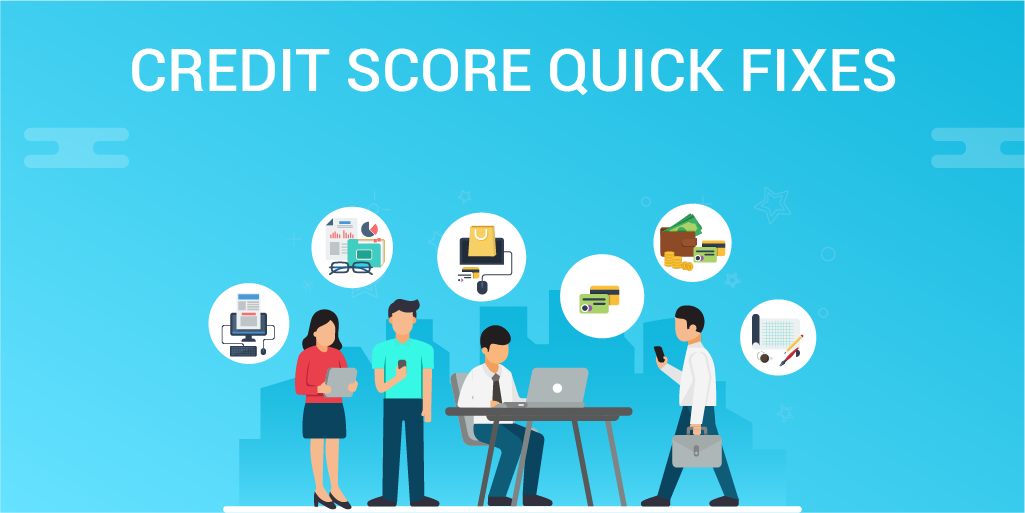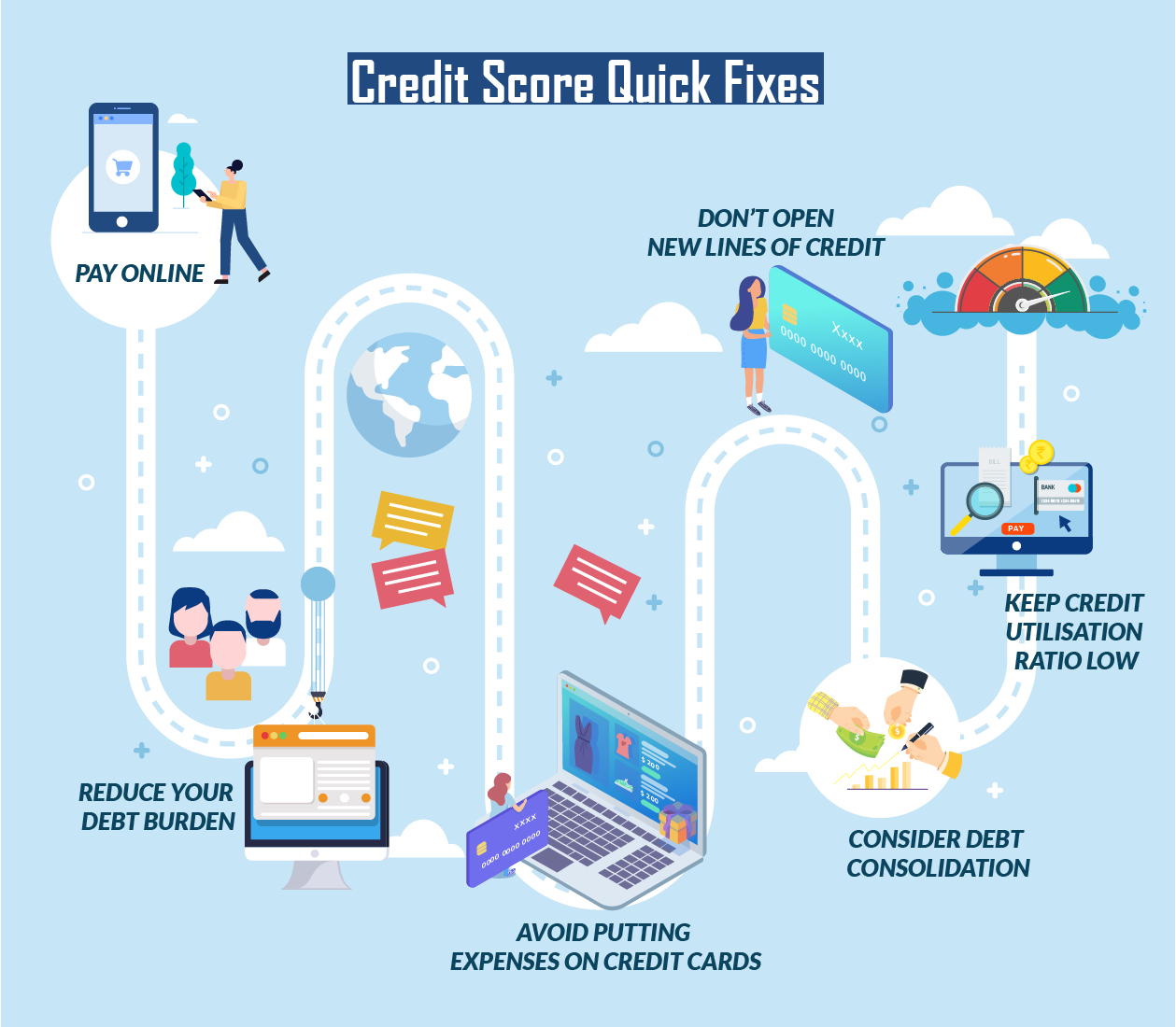Firstly, why is your credit score so important? Well, you might be looking at taking out a loan or getting a credit card. With no dearth of options and deals for erstwhile hard-to-get financial products, it should be easy to buy that new house or get that fancy new credit card, right? While it is easier to access credit and loans in today’s world, there are still some hoops to jump through before the bank sanctions a loan/credit card.
The gold standard for most financial institutions is the applicant’s credit score. A credit score indicates how credit-worthy you as an applicant are, and could also influence the interest rate and quantum of loan you receive. Ensuring you maintain a good credit score is vital to keep your finances from faltering.
Keeping up a consistently high credit score may be difficult for some, but there are a number of tips and tricks that you can use to boost your flagging credit score. A few useful tips are listed below:
Pay Bills On Time:
To keep your credit score from falling, make sure you make all your bill payments on time. While keeping up with utility and mobile bills is something most of us do regularly, keeping up with loan payments or credit card bills is equally important. Making timely payments indicates you are responsible with your finances and can be trusted to repay the bank/financial institution. It also keeps your credit score stable and maintains a favourable score.
Reduce Your Debt Burden:
Easier said than done, reducing the amount you owe can go a long way in boosting your credit score and overall financial health. Look over all outstanding expenses you have, such as a loan EMI, credit card bills, insurance premiums etc. and look at the interest rate you’re charged on each. Budget in such a way that you pay off all essential bills such as utility bills and immediate expenses. If you’re facing a cash crunch and are unable to make the payments on your other debt, attempt to pay off the highest interest rate debt first. For example, if you have two credit card bills to pay off, pay off the high interest rate credit card and make the minimum payment on the lower interest rate card.
Avoid Putting Expenses on Credit Cards:
Credit cards are quick and convenient, but you can easily fall into a debt trap if you are not careful. Try to limit credit card charges for a while till you pay off all outstanding debt owed on the card. If you need to use credit for expenses, avoid putting big purchases on your card.
Don’t Open New Lines of Credit:
A quick fix that most people attempt is opening new lines of credit to increase their overall credit limit. This might seem like a good idea initially, since you will have a higher credit limit. However, this could backfire since banks might see it as a sign of dire financial need. They would thus be less likely to approve a loan or issue a new credit card to an individual with such activity. Managing multiple lines of credit would also pose a problem, since you would have to keep up with fees and charges associated with the new credit cards in addition to existing expenses.
Consider Debt Consolidation:
Have to pay off outstanding balances on multiple credit cards? Managing payments and disparate interest rates through debt consolidation. Consider taking out a personal loan with a manageable interest rate and pay off all your outstanding expenses. You will then have to pay off the personal loan at a fixed interest rate, as opposed to varying interest rates on all your credit cards. Generally personal loans also have lower interest rates as compared to the APR of a credit card.
Keep Credit Utilisation Ratio Low:
A credit utilisation ratio is the amount of revolving credit you are using divided by the total amount of revolving credit you can utilise. In simple terms, it’s how much you currently owe against your total credit limit. Most financial analysts advise credit cardholders to keep their credit utilisation ratio at 30% of their total credit limit. While this is not set in stone, it is advisable to keep your utilisation ratio as low as you can manage. Avoid using more than 75% of your utilisation ratio at any point of time, or pay it off in your next billing cycle so it doesn’t impact your credit score negatively.
While there is no one-stop quick solution to boost your credit score, being consistent with payments and avoiding too many hard enquiries for loans or cards can go a long way in making you more credit-worthy. Using a combination of the tips mentioned above over a period of time will make it easier for you to apply for and get a good rate on loans and other financial products.
And don’t forget to make use of a smart financial app which not only lets you get your free credit score, but also gives you a detailed report on the factors that had affected your credit score.
Check your FREE Credit Score & track it regularly! → Download The BankBazaar App Now!


